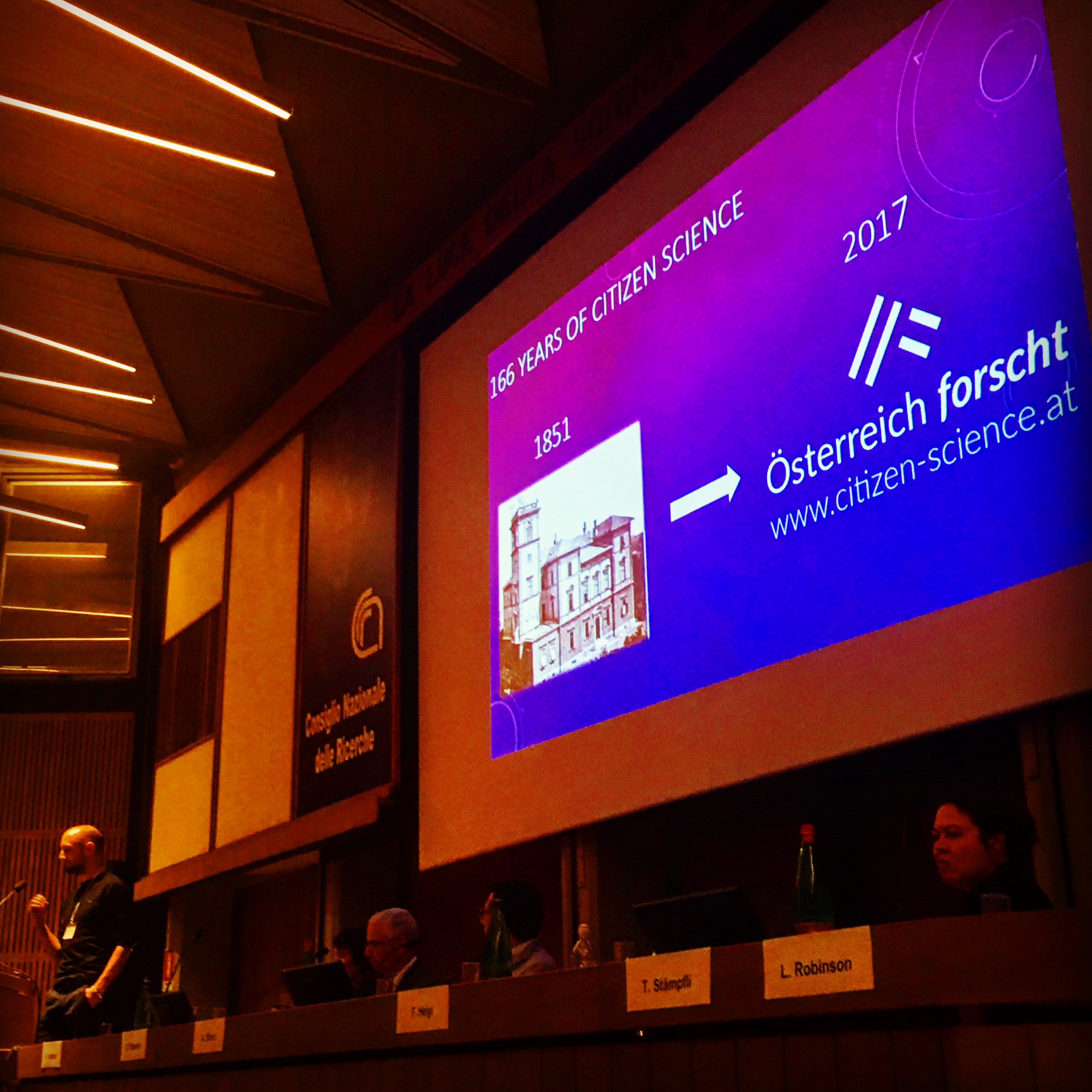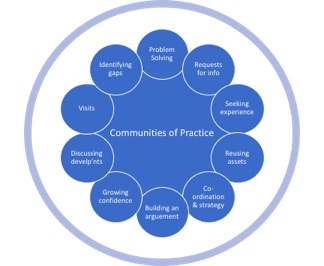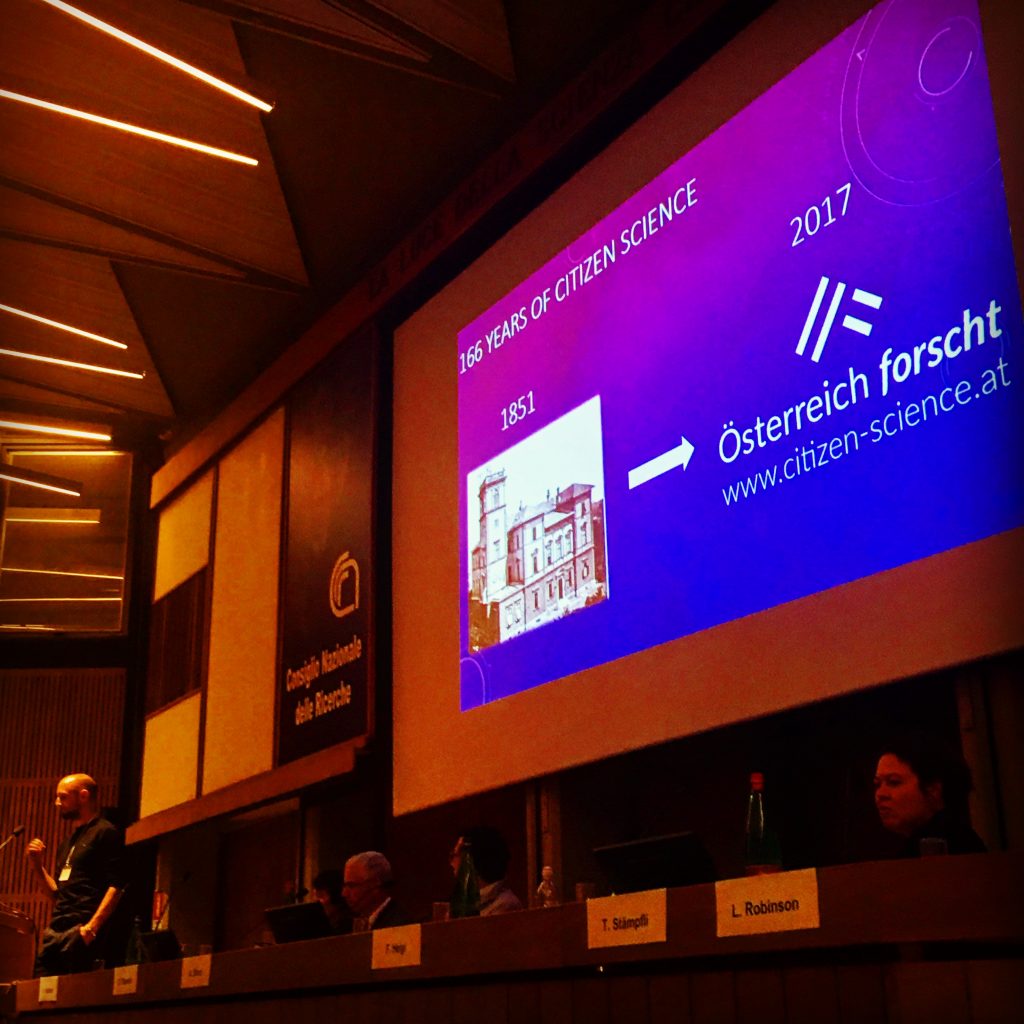So, you’ve seen that OPENER is open for all, but what does this ‘community’ mean to you?
We write this post soon after delegates from the Australian Citizen Science Conference were sharing a stubby and mulling over the fantastic array of participatory approaches showcased during the international conference in Adelaide (#CitSciOz18). The coming together of people sharing a common passion, in this case citizen science (CS), is becoming increasingly common, but the diversity of interactions out there are magnificently bewildering. While we await the outcome of the session devoted to #partnerships, we begin to untangle the array of communities in existence and welcome you with open arms to contribute to this discussion.
Jump straight to:
- The definition of ‘communities’
- Citizen science COPs are already out there
- Examples of ‘science for society’ communities
- Our OPENER community
- Join the conversation
Communities of…Practice, Place and Potential!
So, what is the spirit of the word ‘community’ and what does it mean to you? Communities are as diverse as the people who contribute to them, however, it perhaps useful to consider a dictionary definition.
A unified body of individuals Mirriam Webster
The folks at FeverBee have gone one step further to categorise different types of communities in the helpful table below. Whether we coalesce under a joint goal to change the world, natter about the rubbish waste collection in Coronation Street or because we have a shared interest in developing CS activities, we can all be part of a collective endeavour.
Image thanks to FeverBee Community Management Course
With OPENER being about ‘opening up science to all’ i.e. we are sharing in a common activity, perhaps it would be pertinent to hone in on COPs. While you may be thinking “what do American policemen have anything to do with this?”, we are in fact talking about Communities of Practice. However, there may be something in the link here with this army-trained sniffer dog nosing out rare bumblebee nests which takes being a citizen scientist to a whole new level. We all have the potential to play a part (even our canine accomplices). Wenger Trayner define COPs as:
Communities of practice are groups of people who share a concern or a passion for something they do and learn how to do it better as they interact regularly.
There are a few key criteria that gel COPs together as my rough ‘n’ ready figure below sums up.
Image developed from examples of typical COP activities as suggested by Wenger Trayner
What Citizen Science COPs are already out there?
The notion of networks frequently comes up in discussion at CS events around the world and this was no different in a workshop at the First Italian Citizen Science Conference in Italy last November. German, Austrian, Swiss, French and UK CS managers sat under the spotlights of the impressive Roman venue sharing their national experiences. The overriding message was that even at the European level we are wildly different in the level of coordination of communities. We heard about the Austrian Österreich forscht a 52 partner-strong collective bound together by an MOU and a comprehensive website housing a project repository, resources and news from around the country; to the Swiss Schweiz forscht which has taken the Austrian model and run with it; to the French Natural History Museum coordinating CS efforts from Paris and a whole German CS Government strategy paper, Buergerschaffenwissen devoted to the pursuit of participatory science.
In the UK the situation is slightly different. If we take environmental CS for example, there are a vast array of activities occurring (perhaps owning to our long love affair with whipping our binoculars out every weekend to check out the latest feathered arrival in our gardens.) We arrange ourselves around topics such as the British Ecological Society’s Special Interest Group on Citizen Science; or around methodological approaches such as the Bristol Natural History Consortium’s Bioblitz group; and by audience with the government agency focussed UKEOF Citizen Science Group. There are a whole spectrum of different bodies out there who have an explicit remit for CS, indeed just within the team:
- Reading University conduct research into motivations of non-professionals taking part in CS
- ExCiteS group support bottom-up practice to account local needs, practices and culture and work with broad networks of people to design and build new devices and knowledge creation processes that can transform the world
- CoCoast conduct a portfolio of marine research around UK shores training citizen scientists to record and protect our seas and marine biodiversity
- Earthwatch are world leaders empowering ordinary people to collect valuable scientific data, while providing those individuals with unique experiences and access to leading scientists;
- OPAL: bring together scientists, policy makers and participants (particularly the younger generation and those from hard to reach sectors of society) from around the UK to monitor environmental health on their doorsteps.
There is however, no overarching umbrella organisation melding everyone together. So, while there are a whole host of coordinating bodies out there, a statement I heard echo round the theatre was that, at a national scale: “we are really not that organised”.
Spotlight on science for society
Widening our vision globally, it is fascinating to see the array of communities which exist placing different audiences centre stage in discussions around environmental sciences.
Statutory: First up, we examine the platform which underpins an archetypal COP with a policy focus. The Federal Community of Practice on Citizen Science and Crowdsourcing ‘works across the [US] government to share lessons learned and develop best practices for designing, implementing and evaluating crowdsourcing and citizen science initiatives’, its portal Citizenscience.gov provides:
- ‘A catalogue of federally supported citizen science projects’, a nifty interactive map which allows you to explore 422 projects (at time of writing) filtering by project type, agency involvement, participant age or intended outcomes.
- ‘A toolkit to assist federal practitioners when designing and maintain their projects’, including ‘how to’ guides for planning, developing and delivering CS, case studies and a resource library with plenty of journal articles and reports to peruse.
- ‘A community of hundreds of citizen science practitioners and coordinators across government’ which you can join if you have a .gov or .mil email address.
Academic: Fast Track Impact is about training by ‘researchers for researchers’ with a mission to ‘change the way researchers generate and share knowledge, so that their ideas can change the world’ and while a company, it retains many of the traits of a COP: the sharing of resources, knowledge and online/in person events.
Societal: Public Lab does what it says on the tin, science by citizens. It is a community which develops and applies open-source tools to environmental exploration and investigation. Their aim is to democratise science to address environmental issues that affect people’s lives; by using inexpensive and accessible ‘Do- It- Yourself’ techniques. Public lab creates a collaborative network of practitioners who actively re-imagine the human relationship with the environment and support each other’s exploration, which leads to technical development and real application in our communities. It was founded by a group of activists, concerned citizens, educators, technologists and community organisers interested in ways to promote action, intervention, and awareness through a participatory research model. Anyone can join, attend a local event or event call (called Open Hour), chat online to discuss questions and next steps. What a stonker!
Your OPENER community
There are certain activities that we are planning to hold throughout the year such as local COP meet-ups which we would love you to come along to; a resource library where we invite you to share your favourite resources and a series of blogs like this one which are simply a start to trigger conversations around the topic with you. We want this to be a movement for all disciplines – not exclusive to academics in ivory towers, policy makers bogged down in bureaucracy or grass roots campaigners lacking in resources. The exciting thing is we’re all converging together, bringing multiple voices to the table, a community for you, by you.
Would a more joined-up approach maximise efficiencies, avoid ‘re-inventing the wheel’, ensure clear signposting to relevant projects and enhance the capacity of the sector to generate more funds to support CS projects of the future? Could coordination help without stifling innovation?
Is that community spirt alive and well?
As a first step, we would love to hear about what you want from this community. Help us answer some of the questions above and shape what this OPENER community becomes.
Be a bee and create a buzz online by providing feedback on Twitter @OpenUpSci or by filling in our form. This is just the start of things to come…
Author Biog: Poppy Lakeman Fraser (known as Pop to her friends) is a Dorset- dwelling, dog loving, deliberator of all things natural. She has a PhD in global change ecology and has worked at the Natural History Museum in London, Forestry Commission in Hampshire and even as a classroom assistant in a local secondary school in Hertfordshire. She is barmy about citizen science as the Senior Coordinator of the OPAL programme and has volunteered on the iTree London mapping project and Butterfly Conservation’s wider countryside monitoring scheme.





1 comments on “Community Spirit”